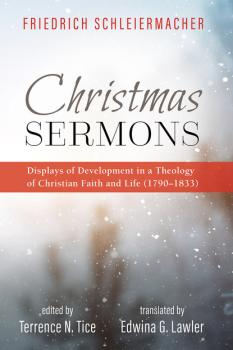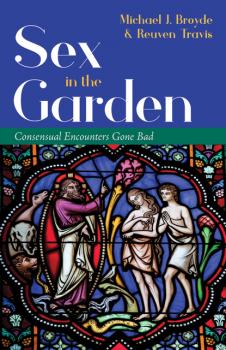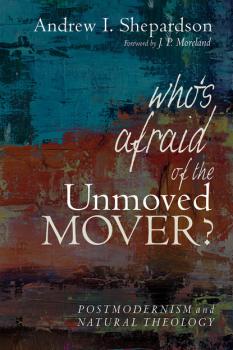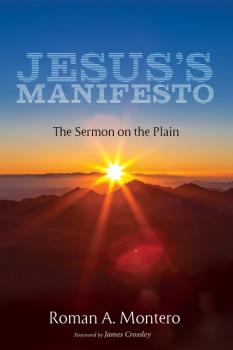ТОП просматриваемых книг сайта:
Религия: прочее
Различные книги в жанре Религия: прочее, доступные для чтения и скачиванияАннотация
The contemporary church's debate on the inclusion of same-sex individuals and their relationships has devolved into diametrically opposed positions. Rather than resolving the argument, the conversation between the two sides reflects the impasse that is taking place in denominations across the West. It is clear that the dispute cannot be resolved while couched in these terms.
In this timely work, Steven Schafer invites the reader to move beyond the terms of the current debate toward the underlying doctrinal concerns so often glossed over by that discussion. This book is a work of hermeneutics that engages the contemporary discussion on the legitimacy of same-sex relationships with the grand theological narrative handed down by the church. By placing four contemporary revisionists in dialogue with the work of Augustine, the book provides language and theological avenues to reframe the debate and contributes to the church's ongoing discernment.
In this timely work, Steven Schafer invites the reader to move beyond the terms of the current debate toward the underlying doctrinal concerns so often glossed over by that discussion. This book is a work of hermeneutics that engages the contemporary discussion on the legitimacy of same-sex relationships with the grand theological narrative handed down by the church. By placing four contemporary revisionists in dialogue with the work of Augustine, the book provides language and theological avenues to reframe the debate and contributes to the church's ongoing discernment.
Аннотация
This book describes the sociocultural context that shaped Christian initiation for many early Jamaican congregants within the African Methodist Episcopal (AME) Church. Christian initiation in early-twentieth-century Jamaican AME churches included the practice of two water rituals for children within most of its congregations–first, the christening or sprinkling of water on infants, and second, immersion when the child reached the age of consent and made a public confession of faith. The ambiguity of John Wesley's doctrine and practice of the sacrament of baptism are provided with the cultural milieu of nineteenth- and early-twentieth-century Jamaica to allow the reader to calmly consider the spectrum of evidence–and consider how the use of two water rituals became normative for many disciples of Christ to become full members within the early AME Church in Jamaica.
Sermons by Jonathan Edwards on the Church, Volume 1 - Группа авторов
The Sermons of Jonathan EdwardsАннотация
In April 1740, Jonathan Edwards, minister of Northampton, Massachusetts, preached a discourse on Hebrews 12:22-24 comprising eight sermons. At this point, he had been the senior pastor of that town for just over a decade, and had seen his congregation through the historic Connecticut Valley Awakening of the mid-1730s, when several hundred souls were reportedly savingly converted. This first volume of Sermons by Jonathan Edwards on the Church contains the previously unpublished Hebrews discourse, «Christians Coming to Mt. Zion,» preached on the very cusp of the transatlantic religious movement that would become known as «The Great Awakening,» the New England phase of which began later that year. In addition to the complete and original text of Edwards' discourse, the volume includes two introductions that describe his preaching style and method and provide an historical context.
Аннотация
Christians have always looked to models within the Christian faith to guide their lives. At a time when the church is more identifiable by ugly partisan politics–what we call «crappy Christianity»–than by compassionate neighbor love, this book highlights the lives and work of seven individuals who are pursuing their Christian calling in humility and profound love for and service to others, this book highlights the lives and work of seven individuals who are pursuing their Christian calling in humility and profound love for and service to others. Their commitments have led to vocations in working with homeless women, employing refugees, lobbying on Capitol Hill for environmental protection, healing trauma in urban communities, peacemaking in Israel-Palestine, advocating for immigrants, and walking alongside people in addiction recovery. Their individual and collective witness offer compelling examples of authentic Christian life, which is marked in part by active, embodied faith in pursuit of the common good; a broad and inclusive love for all people; rightly ordered political identities and loyalties; and a commitment to work toward holistic redemption of both people and the systems that constitute our life together. In contrast to much of contemporary American Christianity, these models of faith demonstrate that Christians should focus much more on what we are for rather than what we are against.
Аннотация
New discoveries arise alongside memories in every Christmas sermon that Friedrich Schleiermacher (1768-1834) ever delivered. This book invites readers into an informed experience of Christmas through eleven sermons. In these pages readers watch Schleiermacher lay discovery and memory side by side, because this is how his own famed systemic theological views of Christian faith and life developed throughout his life. These sermons evoke first curiosity then wonderment at the prospects reading can open. For Schleiermacher, Christmas was always a special time to engender such experiences–a time to survey different vistas of Jesus' birth and career. Schleiermacher lived when the modern age was being born. He contributed substantially to that birth and to the health of modern times. His sermons collected here display the main theological grounds for his worldview, which is still quite timely today.
The Visible Shape of Christ's Life in Us - Группа авторов
Wycliffe Studies in Gospel, Church, and CultureАннотация
How can we live in the world without falling either to the dangerous pitfalls of Christian legalism or the lure of unbridled hedonism, especially in a generation that rejects most formal expressions of Christianity? Saint Paul suggests that there is only one way–to walk in step with the Spirit, while bearing the fruit of the Spirit in our daily lives. Because this is a daily process, one fraught with success and failure, the following volume of essays seek to articulate how the Christian can prepare themselves for life in the Spirit, following Paul's admonition to «keep in step with the Spirit» (Gal 5:25) as we move closer and closer to meeting our Lord. The Visible Shape of Christ Life in Us: Meditations on the Fruit of the Spirit is a collection of essays originally preached in the Founders Chapel of Wycliffe College, University of Toronto, in the fall semester of 2018. Originally intended for a diverse audience of students, faculty, and professional clergy, these essays represent the best of Anglican theological insight in the context of the greater Christian community. They are intended for personal reflection, and daily devotion–a welcoming, accessible addition to any theological collection.
Аннотация
In the #MeToo times in which we live, there are few hard and fast rules that govern personal encounters and sexual liaisons. Consent, so long as it is neither coerced nor forced, dictates all. Astute students of the Bible will see this aspect of our current social milieu reflected in the book of Genesis. Genesis is not a book about laws. There are no «thou shall» or «thou shall not» commandments given over by God to humanity. Instead, its narrative depicts the cultures of its time as operating on personal choices and personal freedoms. And from the first sexual tryst in the garden of Eden to the attempted seduction of Joseph by the wife of Potiphar, these consensual encounters tend to end badly. The cautionary nature of these tales underscores the continued relevance of Genesis for our times.
Аннотация
Phillip Carson, Indiana born and raised, is faced with the decision of moving to California in early adolescence for the sake of his mother's health. He follows his parents to the Los Angeles area, where the adventure of his life begins. There he meets Susan Giles, a light in his life during the more innocent time of high school. They become an item, and she returns to his life post-college when he is dealing with three adversaries and his own internal struggles. During the eleventh grade, Phillip also meets retired fireman William Jones. William became a positive influence in other people's lives after suffering a huge loss and trying to make the right decisions going forward. He commits his retirement years to reaching out to inner-city juveniles and later becomes a good friend to Phillip. Phillip learns from William and must later grow in his own faith to complete the challenges set before him. This is a story of the shadows of strife being overcome, and virtue left standing.
Аннотация
Are postmodern philosophy and Christian theology compatible? A surprising number of Christian philosophers and theologians think so. However, these same thinkers argue that postmodern insights entail the rejection of natural theology, the ability to discover knowledge about the existence and nature of God in the natural world. Postmodernism, they claim, shows that appealing to nature to demonstrate or infer the existence of God is foolish because these appeals rely on modernity's outmoded grounds for knowledge. Moreover, natural theology and apologetics are often hindrances to authentic Christian faith. Notions like objectivity and rationality are forms of idolatry from which Christians should repent. This book carefully examines the nature of truth, rationality, general revelation, and evangelism to show that the postmodern objections fail and that Christians ought to lovingly and faithfully use natural theology and apologetics to defend and commend the Christian faith to a world in need of the knowledge of God.
Аннотация
Jesus's Manifesto: The Sermon on the Plain is a historical analysis and exegesis of the Sermon on the Plain found in Luke 6:20-49. Going into the historical and literary context of the Sermon on the Plain, it examines how the message fits into the world of Jesus and his audience. Jesus's Manifesto demonstrates how the Sermon's ethical injunctions and eschatological message interacted with contemporary ideologies, and how these injunctions were meant to be taken as normative commandments by Jesus in light of his eschatological message. Many have attempted to dampen the ethical teachings of Jesus by trying to relativize them, or by trying to make them compatible with the wider culture and the dominant ideologies; however, when understood in its historical context, the Sermon's message was not only incompatible with the wider culture and the dominant ideologies, but it stood in opposition to them. Jesus's Manifesto provides the necessary historical and anthropological tools to fully appreciate the profound and seemingly radical message of the Sermon of the Plain.










